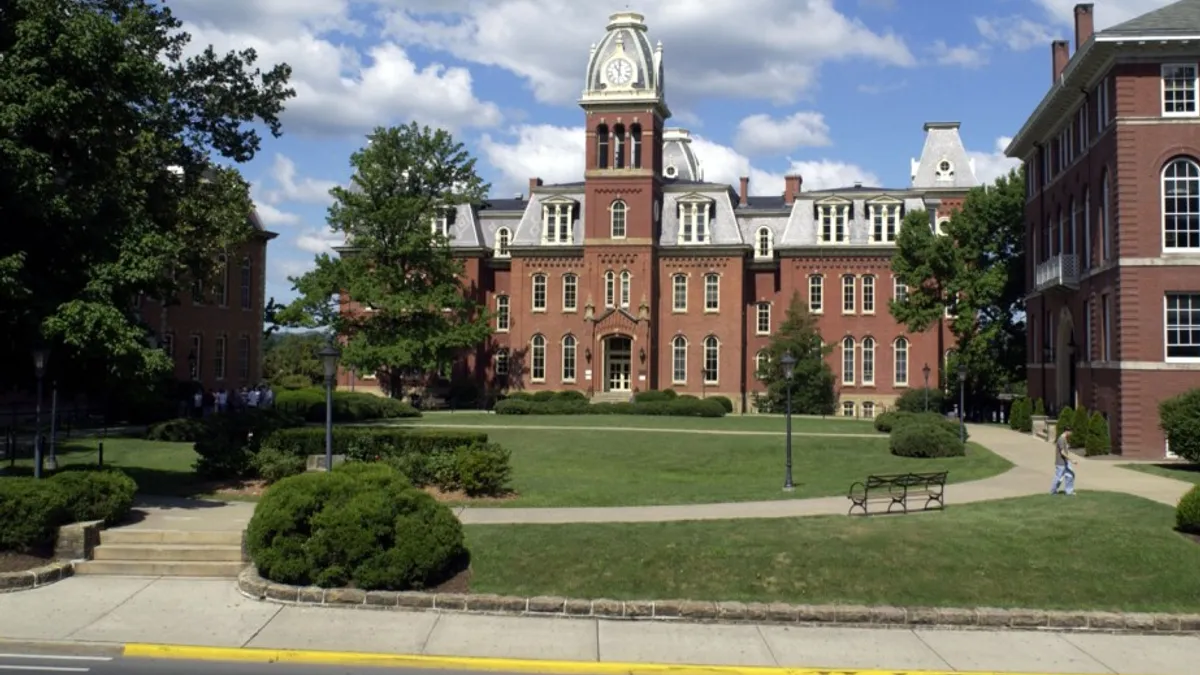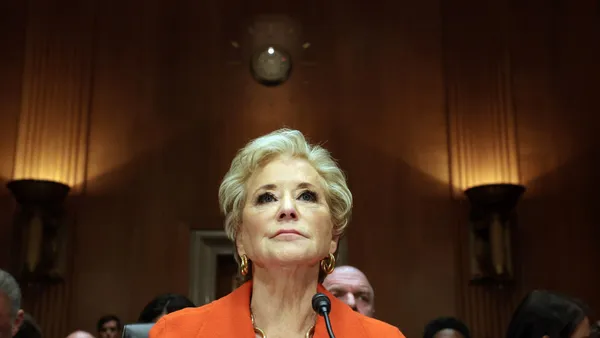Dive Brief:
-
The president of West Virginia University (WVU) addressed ongoing tension between the administration and Greek life on campus in an email to parents on Sunday, cautioning them — and students — to avoid a handful of fraternities that have threatened to separate from the university in the face of new, stricter rules stemming from recent reports of alcohol and drug abuse and sexual and disorderly misconduct on campus.
-
President Gordon Gee said the chapters lost recognition from the university and therefore cannot use the institution's brand or facilities and its members cannot participate in college activities. A meeting Tuesday with Gee, fraternity leaders, and the North-American Interfraternity Conference did not lead to a resolution, the Pittsburgh Post-Gazette reported.
-
In an interview this week with Inside Higher Ed, Gee shed some light on the position of administrators today, noting that while he wants fraternities and sororities on WVU's campus, if you "gave most college presidents truth serum" they would say they don't. Gee has been president at The Ohio State University, the University of Colorado and Vanderbilt University.
Dive Insight:
Colleges and universities continue to take steps toward better managing Greek life on campus, but in most cases those efforts have been reactive.
In January, a settlement was reached in the death of 18-year-old WVU student Nolan Burch who died during a hazing activity in November 2014 at which he drank excessively and was left unattended after passing out. A month after the settlement was announced, Gee placed a moratorium on all recruiting and other social activities at WVU's 16 social and social-professional fraternities, allowing them to continue operations and service activities. Gee also called for a review and strengthening of Greek life oversight at the university.
WVU is not the only university facing these issues. Louisiana State University, Florida State University, Texas State University and Pennsylvania State University all contended with fratnerity pledge deaths due to hazing and alcohol overdoses in 2017, Inside Higher Ed reported, and followed up with significant changes to limit Greek activity.
The University of Michigan's Interfratneral Council last year temporarily suspended Greek activities amid reports of hazing and misconduct. The suspension ended in January 2018 with the individual chapters receiving action plans outlining steps required to regain full social privileges.
Three presidents from among those universities are attempting to get colleges to work together on the issue. They also want to develop a national scorecard that would track misconduct among Greek organizations and provide administrators with ideas about addressing concerns.














